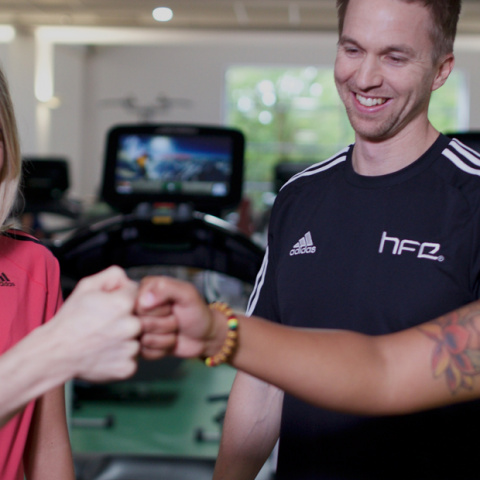Finding the motivation to exercise can be a challenge, but new research suggests simply remembering a positive memory about exercise may be all you need to get going again. The research from the University of New Hampshire is thought to be the first study to explore how positive memories can influence future workouts.
Researchers examined the effects of remembering past exercise experience on students’ subsequent exercise intentions and behaviours. 150 participants took part in the study and were split into two groups. The first group were asked to think back to a positive or negative memory that would increase their motivation to exercise, while other students were not asked to recall a motivational memory (the control group). The researchers then surveyed the students one week later to see if they reported an increase in exercise.
The researchers found students that remembered a positive exercise memory reported significantly higher levels of subsequent exercise than those who were not asked to recall a memory about exercise. They also found that students who were asked to recall a negative exercise memory also reported exercising more than the control group, although less than the group that recalled a positive memory.
“This study underscores the power of memory’s positive directive influence in a new domain with practical applications: exercise behaviours,” wrote University of New Hampshire (UCH) researchers Mathew Biondolillo and David Pillemer, together with Dr Samuel Paul, professor of developmental psychology at UCH.
“Students responded only to a single request to describe a personal motivational memory, and this request was embedded in a broader survey”, said the researchers. “They were not asked to use the memory in their daily lives as motivation to increase their exercise activities. Without explicit direction or encouragement, our sample of college students, amidst the innumerable distractions afforded by life at a large, public university, increased their reported exercise activities from their habitual levels. These results provide the first experimental evidence that autobiographical memory activation can be an effective tool in motivating individuals to adopt healthier lifestyles.
“From a public health perspective, identifying factors that can motivate individuals to engage in regular exercise is vital,” they concluded.
The new research is published in the journal Memory, titled: using memories to motivate future behaviour: an experimental exercise intervention.
We all have days when we know we’ll feel better after a workout, but we just cannot seem to bridge the gap between lying on the sofa and actually doing some exercise. Thinking of a positive past experience where you felt great post-workout or a negative one where you know you could have done better could be all the motivation you need.
If you need a further push to get going and moving – you could also try the take ten method to boost your motivation. Make a deal with yourself that you’ll just do ten minutes of exercise. Once you’re in the zone and working out, you may just surprise yourself and end up doing a complete workout.


